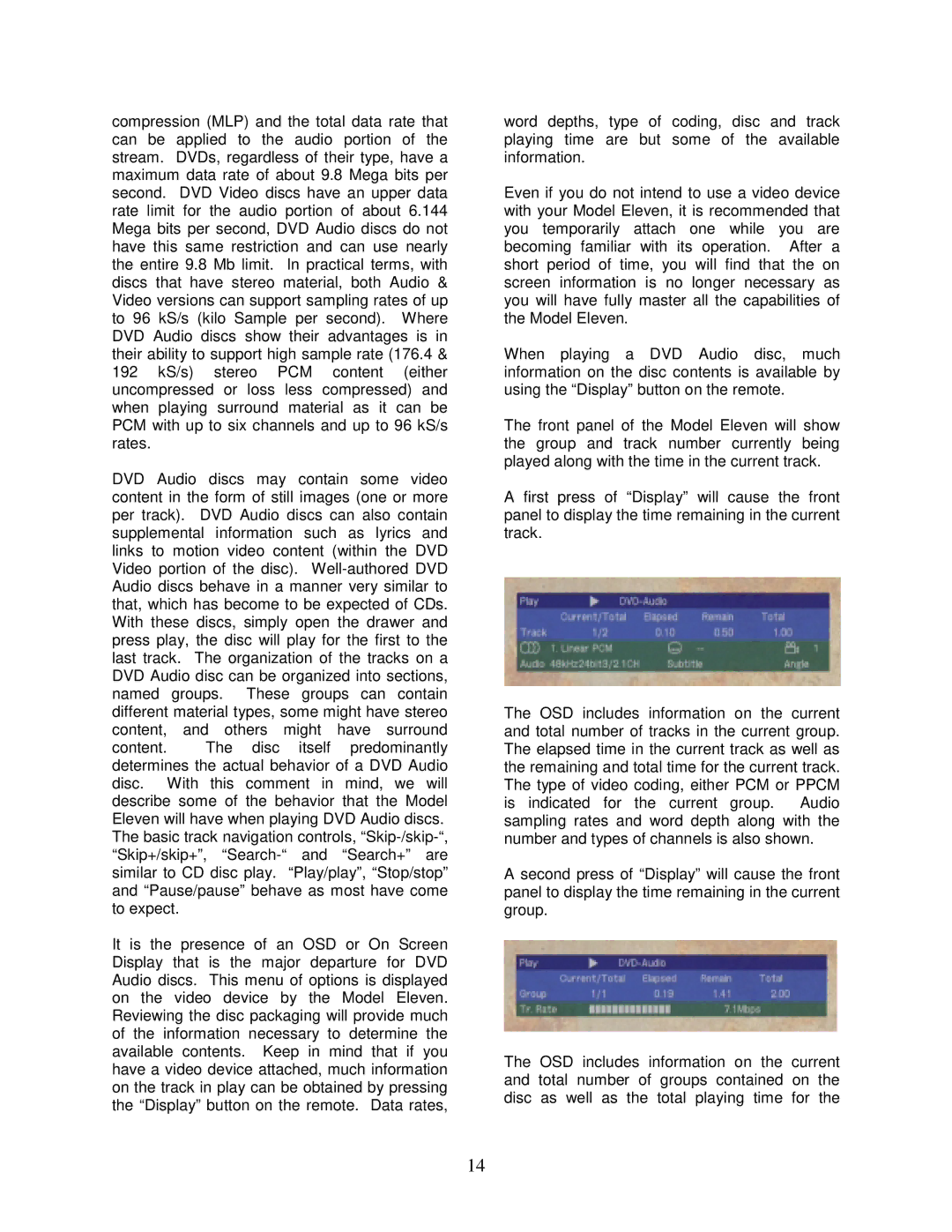
compression (MLP) and the total data rate that can be applied to the audio portion of the stream. DVDs, regardless of their type, have a maximum data rate of about 9.8 Mega bits per second. DVD Video discs have an upper data rate limit for the audio portion of about 6.144 Mega bits per second, DVD Audio discs do not have this same restriction and can use nearly the entire 9.8 Mb limit. In practical terms, with discs that have stereo material, both Audio & Video versions can support sampling rates of up to 96 kS/s (kilo Sample per second). Where DVD Audio discs show their advantages is in their ability to support high sample rate (176.4 & 192 kS/s) stereo PCM content (either uncompressed or loss less compressed) and when playing surround material as it can be PCM with up to six channels and up to 96 kS/s rates.
DVD Audio discs may contain some video content in the form of still images (one or more per track). DVD Audio discs can also contain supplemental information such as lyrics and links to motion video content (within the DVD Video portion of the disc).
content. The disc itself predominantly determines the actual behavior of a DVD Audio disc. With this comment in mind, we will describe some of the behavior that the Model Eleven will have when playing DVD Audio discs.
The basic track navigation controls,
to expect.
It is the presence of an OSD or On Screen Display that is the major departure for DVD Audio discs. This menu of options is displayed on the video device by the Model Eleven. Reviewing the disc packaging will provide much of the information necessary to determine the available contents. Keep in mind that if you have a video device attached, much information on the track in play can be obtained by pressing the “Display” button on the remote. Data rates,
word depths, type of coding, disc and track playing time are but some of the available information.
Even if you do not intend to use a video device with your Model Eleven, it is recommended that you temporarily attach one while you are becoming familiar with its operation. After a short period of time, you will find that the on screen information is no longer necessary as you will have fully master all the capabilities of the Model Eleven.
When playing a DVD Audio disc, much information on the disc contents is available by using the “Display” button on the remote.
The front panel of the Model Eleven will show the group and track number currently being played along with the time in the current track.
A first press of “Display” will cause the front panel to display the time remaining in the current track.
The OSD includes information on the current and total number of tracks in the current group. The elapsed time in the current track as well as the remaining and total time for the current track. The type of video coding, either PCM or PPCM is indicated for the current group. Audio sampling rates and word depth along with the number and types of channels is also shown.
A second press of “Display” will cause the front panel to display the time remaining in the current group.
The OSD includes information on the current and total number of groups contained on the disc as well as the total playing time for the
14
